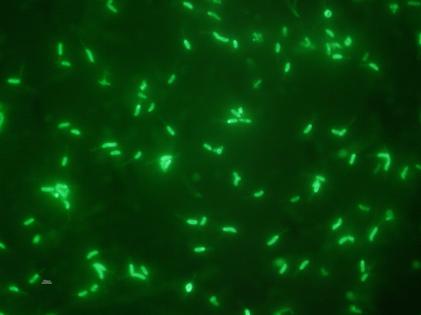Deadly flesh-eating bacteria in Florida waters: Vibrio cases decline; danger persists
Published in News & Features
Four people in Florida have died this year from Vibrio vulnificus, a rare flesh-eating bacterium found in warm, brackish seawater, among 11 confirmed cases, according to state health officials.
CBS Miami reports the number is down from 2024, when infections peaked with 82 cases and 19 deaths. Health officials linked that spike to Hurricane Helene.
Since 2016, Florida has recorded 448 cases and 100 deaths tied to the bacteria.
The 2025 deaths have been reported in Bay, Broward, Hillsborough, and St. Johns counties. Additional cases have also been confirmed in Duval, Escambia, Lee, Manatee, Santa Rosa, and Walton counties, as well as a second case in St. Johns.
Vibrio vulnificus infections are uncommon, but the Centers for Disease Control and Prevention estimates about 80,000 Vibrio cases and 100 related deaths occur each year in the United States.
The bacterium poses a heightened risk to individuals with weakened immune systems or chronic health conditions.
Here are some key facts about Vibrio vulnificus, according to the CDC:
How infection happens
•Eating raw or undercooked shellfish, especially oysters
•Exposing open wounds to warm salt or brackish water
•No evidence of person-to-person transmission
How it is diagnosed
•Through stool, wound, or blood cultures
•Labs should be notified in advance to use the correct growth medium
•Physicians should suspect Vibrio in patients with gastrointestinal symptoms or wound infections following seafood consumption or seawater exposure
Symptoms
•Watery diarrhea, vomiting, and abdominal pain
•Skin infections from wounds exposed to seawater
•In severe cases: skin breakdown, ulcers, and bloodstream infections
What illnesses it can cause
•Gastrointestinal illness: vomiting, diarrhea, and abdominal pain
•Wound infections: can lead to ulcers, tissue damage, and, in severe cases, amputation
•Bloodstream infections: potentially fatal, with symptoms such as fever, chills, low blood pressure, and blistering skin lesions
•People with weakened immune systems or chronic liver disease are at much higher risk
How to reduce your risk
•Avoid raw oysters and shellfish; always cook seafood thoroughly
•Prevent cross-contamination between raw and cooked seafood
•Keep open wounds away from warm salt or brackish water
•Wear gloves when handling raw shellfish or seafood
•Refrigerate leftovers promptly and safely
How it is treated
•Immediate antibiotic treatment is critical
•Wound care is essential; in severe cases, amputation may be necessary
For more information, visit the CDC’s Vibrio page.
©2025 Miami Herald. Visit at miamiherald.com. Distributed by Tribune Content Agency, LLC.







Comments